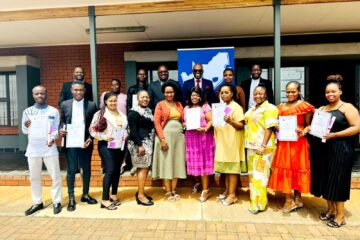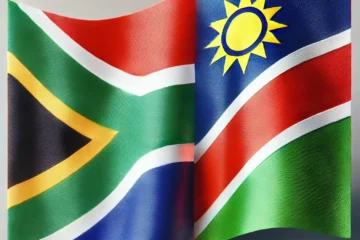DSD ON A ROADSHOW TO EDUCATE NON-PROFIT ORGANISATIONS (NPOs) TO PROTECT THEMSELVES AGAINST BEING USED FOR MONEY LAUNDERING AND TERROR FINANCING

- The South African Department of Social Development (DSD) hosted a workshop in Cape Town to address vulnerabilities within Non-Profit Organisations (NPOs) regarding money laundering and terrorism financing, following the country’s placement on the FATF’s “grey list.”
- With 295,052 registered NPOs in South Africa, many are non-compliant with regulatory requirements, increasing the risk of misuse for illicit activities, especially in light of government budget cuts and inadequate regulation of faith-based organisations.
- The workshop aimed to equip NPOs with essential knowledge on legislation and measures to combat these threats, reinforcing the government’s commitment to implementing FATF’s recommendations ahead of the January 2025 deadline.
As part of the government’s ongoing efforts to implement the key recommendations of the Financial Action Task Force (FATF), the Department of Social Development (DSD) held a workshop with Non-Profit Organisations (NPOs) in Cape Town, Western Cape, to discuss measures to prevent their abuse for money laundering and terrorism financing.
On 23 February 2023, FATF, an international body dedicated to countering money laundering and terrorism financing, placed South Africa on its “grey list,” citing several shortcomings in effectively addressing these twin threats. The FATF evaluation report indicates that the NPO sector is particularly vulnerable to such abuses due to its organisational characteristics, status, and cross-border ties.
The importance of the NPO sector cannot be understated in South Africa. It is growing and significantly contributes to the development agenda outlined in the National Development Plan (Vision 2030). Currently, there are 295,052 NPOs registered under the Non-Profit Organisations Act (Act No. 71 of 1997, as amended). Of this number, 167,103 are non-compliant with the NPO Act, meaning these organisations have failed to submit annual financial reports, thus posing serious risks of being exploited for money laundering and terrorism financing.
The workshop, which brought together 40 NPOs providing services to communities in the Western Cape Province, aligns with a risk-based outreach programme designed to empower NPOs on how to protect themselves from potential terrorist financing abuse.
During the workshop, participants received an overview of the legislation regulating the sector and measures currently underway to strengthen the legislative and institutional frameworks for combating money laundering and terrorism financing in South Africa, using a risk-based approach. Key issues raised by participants included:
- Budget cuts by the government: Severe budget cuts have resulted in some NPOs across all nine provinces not receiving funding, exposing the sector’s vulnerability to money laundering, as these organisations rely on donations and fundraising, including from abroad.
- Mushrooming of so-called “charismatic” organisations: The lack of regulations governing the activities of faith-based organisations and the flow of illicit foreign donations to finance such activities.
- Low levels of knowledge on money laundering and terrorism financing regulations: Participants expressed the need for additional capacity-building opportunities to equip themselves with critical knowledge of FATF global standards to avoid being used as conduits for money laundering and terrorism financing.
One of the key actions recommended by FATF for South Africa was to review the adequacy of existing measures, including laws and regulations, to improve risk-based monitoring aimed at mitigating the threats of money laundering and terrorism financing, especially among NPOs. In this regard, the NPO Act has been amended to prevent the abuse of non-profit organisations and to encourage further disclosure of any such abuse.
The Amendment Act requires registered non-profit organisations to provide information about office-bearers, internal structures, and operations to the Director, and this information must be included in the Director’s register. The Amendment Act further provides for the registration of NPOs that are rendering charitable services and humanitarian aid.
The workshop in Cape Town was the second in a series of workshops that the DSD is conducting across the country as part of a targeted risk-based approach to protect NPOs from being exploited for money laundering and terrorism financing. Similar workshops are planned for NPOs based in Gauteng and the Eastern Cape.
With the January 2025 deadline fast approaching, the Government has made notable progress in implementing FATF’s key recommendations to combat money laundering and terrorism financing.
ISSUED BY THE NATIONAL DEPARTMENT OF SOCIAL DEVELOPMENT














